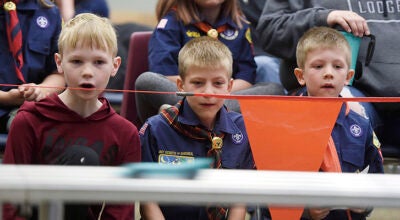Great Lakes nearly covered with ice
Published 9:40 am Friday, February 14, 2014
CHEBOYGAN, Mich. — From the bridge of the Coast Guard cutter Mackinaw, northern Lake Huron looks like a vast, snow-covered field dotted with ice slabs as big as boulders — a battleground for the icebreaker’s 58-member crew during one of the roughest winters in memory.
It’s been so bitterly cold for so long in the Upper Midwest that the Great Lakes are almost completely covered with ice. The last time they came this close was in 1994, when 94 percent of the lakes’ surface was frozen.
As of Thursday, ice cover extended across 88 percent, according to the federal government’s Great Lakes Environmental Research Laboratory in Ann Arbor.
Sections of the lakes, which hold nearly one-fifth of the freshwater on the world’s surface, harden almost every winter. That freezing keeps the Coast Guard’s fleet of nine icebreakers busy clearing paths for vessels hauling essential cargo such as heating oil, salt and coal. But over the past four decades, the average ice cover has receded 70 percent, scientists say, probably in part because of climate change.
Still, as this season shows, short-term weather patterns can trump multi-year trends. Winter arrived early and with a vengeance and refuses to loosen its grip.
“That arctic vortex came down, and the ice just kept going,” said George Leshkevich, a physical scientist with the federal lab.
The deep freeze is more than a novelty. By limiting evaporation, it may help replenish lake water levels — a process that began last year after a record-breaking slump dating to the late 1990s. Also getting relief are cities along the lakes that have been pummeled with lake-effect snow, which happens when cold air masses suck up moisture from open waters and dump it over land.
Buffalo, N.Y, got nearly 43 inches of snow in January, but this month just 13 inches have fallen, a decline resulting largely from the freeze-over of Lake Erie even though Lake Ontario has remained largely open, said forecaster Jon Hitchcock of the National Weather Service.





